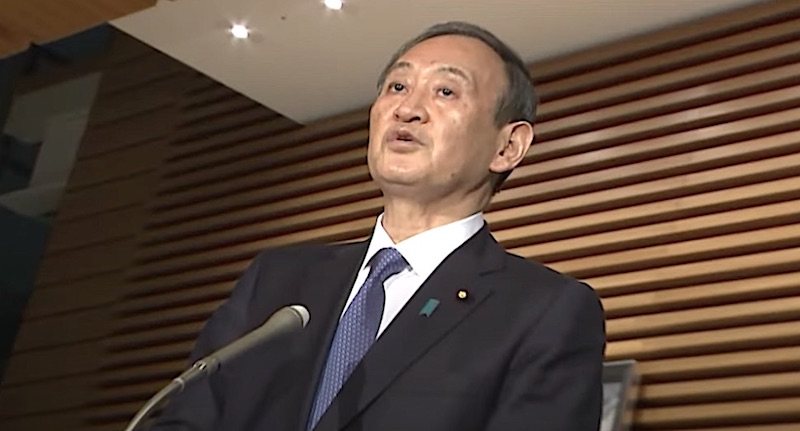Under the revised timeline, the national government is due to begin accepting IR licensing applications from local governments in October 2021. The chances that Yoshihide Suga will no longer be prime minister by that time are growing quickly.
It was only three months ago that Suga ran the table and decisively defeated two opponents in the Liberal Democratic Party presidential race with the overwhelming support from most of the ruling party factions. He was also welcomed by the general public with approval ratings approaching 70 percent and minimal opposition. He seemed to be off to a brilliant start.
The rapidity with which he has been squandering this initially strong political position is alarming.
To begin with the conclusion, it’s turning out that Shinzo Abe’s right-hand man has poor political instincts of his own and is not making the needed transition to the nation’s top post.
Abe was consistently ruthless when it came to election timing, calling snap polls whenever he judged the opposition parties unprepared to put up a credible fight. Having won a landslide and a four-year term in December 2012, Abe called another general election just two years later in December 2014, correctly sensing the weakness of the opposition parties.
In what may ultimately prove to be a fatal mistake, Suga did not follow the same path and ruthlessly call a snap election upon his rise to power, taking advantage of his honeymoon period and the fact that the new, larger Constitutional Democratic Party of Japan had not yet been established. Instead, Suga has effectively trapped himself as far as election timing goes.
His victory in the ruling party presidential race did not win him his own three-year term, but only the right to serve out the final year of Abe’s term. In order to continue as prime minister, he must defeat his ruling rivals again in September 2021. Moreover, the term of the current Diet ends in October 2021, so he is facing down the barrel of a general election as well, fighting against a larger and more united opposition force.
Suga’s political imperative, therefore, must be to maintain his public popularity as well as his hold over the ruling party until at least next autumn. He is failing on both counts.
In an entirely unforced political error, Suga first stepped on his own honeymoon by refusing routine appointments of six scholars to the Science Council of Japan. After many denials, it was eventually acknowledged by Cabinet briefers to the media that these appointments were blocked because the scholars in question had, some years earlier, publicly criticized Abe government policies.
More recently, Suga’s unwillingness to proactively respond to the much larger third wave of the Covid-19 pandemic was also indicative of an administration that seemed uncaring and unwilling to justify, or even explain, why it was taking the actions that it did. Suga’s own long-time attraction to principles of “self-help” were also far out of step with public expectations at a time of national crisis.
Suga’s latest action of finally suspending the “Go To Travel” subsidy program—but only for the New Year holiday, weeks away—seems to have satisfied no one, and may even have driven a wedge between Suga and his most important backer, LDP Secretary-General Toshihiro Nikai, who is, among other things, chairman of the All Nippon Travel Agents Association and an insistent proponent of the travel subsidy program.
Even at his height of authority and influence three months ago, it was always clear that Suga did not have the political safety net that protected Abe from final defeat many times. Suga is not from one of the political dynasties and is thus an outsider in some respects. Abe belonged to the largest ruling faction, while Suga belongs to no faction. If Suga loses public support, it is to be expected that the factions will all begin maneuvering to put one of their own in power. The Japanese media makes it clear that the “post-Suga” debate has already begun in these circles.
The latest Mainichi Shinbun poll has public support for the Suga Cabinet dropping a stunning 17 points to 40 percent support and 49 percent nonsupport. Other polls have less dramatic findings, but they all agree that Suga has been slipping fast.
While many of Suga’s political initiatives are worthwhile—his focus on combating climate change, the digitization of government services, etc.—they all reflect the concerns of a man thinking about the future of the nation, but not thinking very much about gaining the adherence of political constituencies that can help him survive the challenges of the coming year. Combined with his poor public communication skills, there are many reasons to believe that Suga is already on his way out.
For IR development in Japan, this means that a lot of major issues that may currently appear to be fixed may not be as certain as they seem. If there is a new prime minister in 2021, that person is more likely than not to be another advocate for IRs, but unlike the Abe and Suga eras it will not be one of the authors of the current initiative. In other words, that person would be a mere inheritor of the policy, but not one of its political owners.











